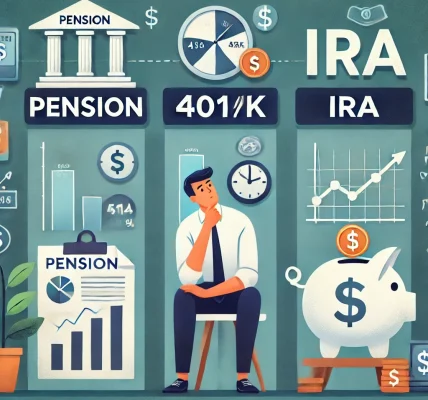Introduction
Retirement is a time for relaxation and enjoyment, but one of the biggest concerns for retirees is healthcare costs. Without proper planning, medical expenses can quickly drain savings and create financial stress. This guide will help you understand the steps necessary to plan for healthcare costs in retirement, ensuring a financially secure and stress-free future.
Understanding Healthcare Costs in Retirement
1. Why Healthcare Costs Increase in Retirement
- As people age, they require more medical attention.
- Inflation affects healthcare expenses more than other living costs.
- Long-term care and assisted living costs are often underestimated.
2. Estimating Your Future Healthcare Costs
- According to research, a retiring couple at 65 may need over $300,000 for healthcare.
- Costs vary based on location, health conditions, and insurance coverage.
- Using online retirement healthcare cost calculators can help in estimating expenses.
Steps to Plan for Healthcare Costs
1. Enroll in Medicare and Understand Your Options
- Medicare Part A & B: Covers hospital stays and outpatient services but has gaps.
- Medicare Part C (Advantage Plans): Offers additional benefits but varies by provider.
- Medicare Part D: Covers prescription drugs, an essential aspect for retirees.
- Consider Medigap (Supplemental Insurance) to cover out-of-pocket costs.
2. Consider a Health Savings Account (HSA)
- HSAs allow tax-free savings for medical expenses.
- Contributions grow tax-free and can be used for qualified healthcare costs.
- If possible, start contributing early to maximize benefits.
3. Purchase Long-Term Care Insurance
- Covers costs of assisted living, home care, or nursing home expenses.
- Premiums are lower if purchased earlier in life.
- Helps prevent the depletion of retirement savings.
4. Estimate Out-of-Pocket Expenses
- Include copayments, deductibles, and uncovered treatments in your budget.
- Consider creating an emergency fund specifically for medical expenses.
5. Plan for Prescription Drug Costs
- Compare different Medicare Part D plans to choose the most cost-effective option.
- Look for generic drug alternatives to reduce expenses.
- Enroll in pharmaceutical discount programs if available.
6. Utilize Employer or Union Benefits
- Some retirees have access to employer-sponsored healthcare.
- Check if benefits extend beyond retirement and adjust your planning accordingly.
7. Maintain a Healthy Lifestyle to Reduce Costs
- Preventative care can lower long-term medical expenses.
- Engage in regular exercise, healthy eating, and routine check-ups.
- Stop smoking and limit alcohol consumption to avoid chronic health conditions.
Additional Financial Strategies for Healthcare Planning
1. Diversify Retirement Savings
- Use a mix of 401(k), IRAs, and taxable accounts for flexibility in covering medical costs.
- Diversification protects against market downturns that may affect savings.
2. Create a Healthcare-Specific Budget
- Allocate a portion of retirement savings solely for medical expenses.
- Adjust based on anticipated needs and inflation projections.
3. Work with a Financial Advisor
- Professional guidance ensures a well-structured plan for covering healthcare costs.
- Financial advisors help navigate complex insurance and investment options.
Avoiding Common Mistakes in Healthcare Cost Planning
- Ignoring inflation: Medical costs rise faster than general inflation.
- Delaying insurance purchases: Premiums increase with age, making coverage costlier.
- Underestimating long-term care needs: Many retirees require some form of assisted living.
- Relying only on Medicare: Additional coverage is necessary to fill gaps.
Conclusion
Planning for healthcare costs in retirement is crucial to ensuring a financially secure future. By understanding Medicare, utilizing tax-advantaged savings accounts, considering long-term care insurance, and adopting a proactive approach to health, retirees can minimize financial stress. Start planning today to enjoy your golden years without worrying about medical expenses.




